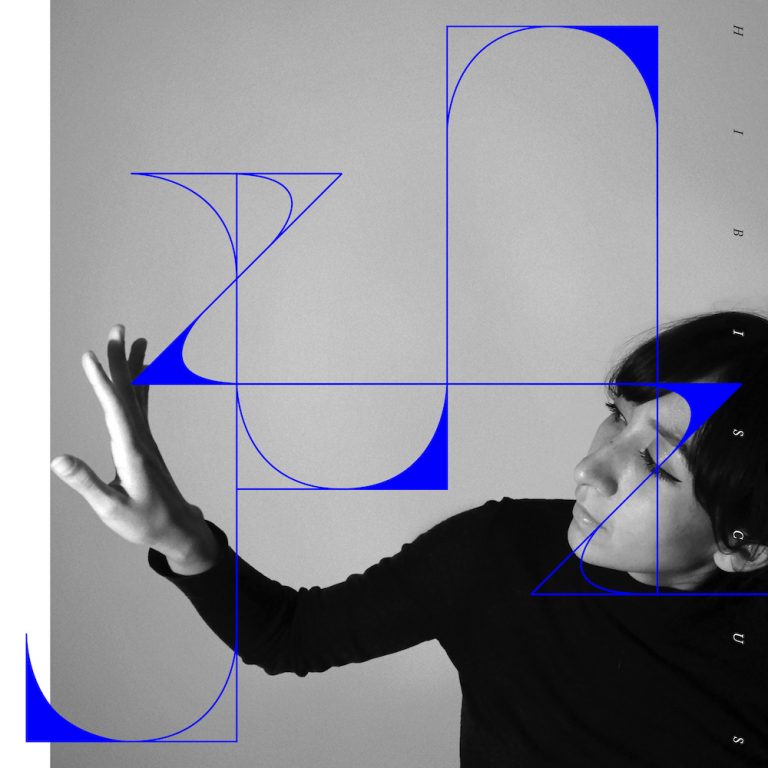Perhaps better known as one half of brilliant Mexican dreampop and psych-experimentalists Lorelle Meets the Obsolete, Lorena Quintanilla’s solo work as J. Zunz focuses more on minimalist, brooding and menacing synth sounds rather than the waves of ethereal guitar fuzz that are the signature sound of her band. Hibiscus, the second album from Quintanilla’s solo project, is a master class in reserve, restraint and how to create a sustained claustrophobic atmosphere.
Album opener “Y” is a tale of patriarchal obstinacy and the restriction of space afforded to women. It spirals in on itself, enveloping the listener with its hypnotic wooziness, descending keyboard line and introspective metronomic beat that pulses like an affronted heart. Hibuscus is a very visual album, the textured layers of sound imploring a mental image for your mind. “Y” conjures up ideas of wet streets, deserted and gloomy subways, and the orange glow from car lights in the crepuscularity of a steadily decaying environment. It’s the aural equivalent of a dark alley near the glittering lights of a pulsating city; it’s the wrong turn in a place of entirely constructed wrong turns. It’s pensive, exquisitely tense and immutably resilient.
“Four Women and Darkness” comes next and relays her grandmother’s harrowing experience of hiding from soldiers in the 1920s. The song’s title is half-sung over and over again, stripped of urgency and obvious fear in its delivery; compellingly appreciative of the terrifying circumstances these women found themselves in. A throbbing bass synth sound acts as the heartbeat of the song, with keyboard lines merging in and out of focus, often sounding like police sirens – yet too far away to be a sign of incoming rescue. There is a reserved stoicism in this song, and the steadfast beat and repetitive refrains of the music suggest an emotional disconnect to events unfolding, as if to present the women whose experiences are being relayed as immovable colossi, which they no doubt are. There are no shock tactics here and no overly manipulative narrative of injustice offered, and the song is all the more harrowing in its simple matter-of-factness as a result.
Hibuscus is occasionally a tender album, yet one of seething anger under the veneer of the shiny electronic surface. “Júpiter” utilises primal scream therapy to powerful effect towards its cleansing denouement, while “33:33” sits at the halfway point of the album, and as it starts to incorporate beats it feels like a gateway to the more cathartic second half of the record. Although the first song written for the record, “33:33” serves as a pivot between the vibrant dark energy of the first part of Hibuscus and the relatively lighter shades cast later on the album. Massive emphasis on ‘relatively’, there.
Quintanilla’s sonic palette is one of exploration, and you either go with the flow that she masterfully dictates or you simply miss out on what is on offer. No doubt comparisons will be made elsewhere to other women who traverse similar aural territories – somewhere just short of Pharmakon, to the left of Jenny Hval and to the right of Fever Ray – but such comparisons only serve to perpetuate the limitations placed on female musicians that Quintanilla is so vocal about in her interviews. Her work is closer in tone and scope to Coil or Nurse With Wound, while the searing and atonal guitar work on “America is a Continent” serving as something of a reference to Swans and early Sonic Youth.
Hibuscus is not an “easy” record, but in a world currently turned upside down for pretty much everyone who needs such a thing as easy? From Quintanilla’s lilting, almost childlike voice, to the sparseness of the instrumentation on some tracks and the harshness on others, this is an album that contradicts, twists and turns without losing sight of its singular vision.

